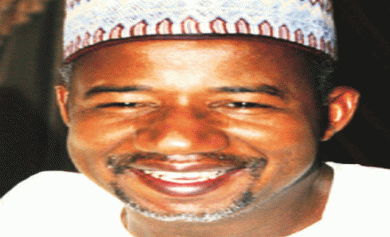
The screening and confirmation of 14 ministerial nominees out of the 34 sent to the Senate and their subsequent swearing in by President Goodluck Jonathan, has finally put an end to the anxiety in the polity following the president’s inability to constitute his cabinet over a month after his resumption in office.
Several reasons were responsible for this delay, chief among which was the fact that the nominees necessarily had to undergo security screening before their names could be forwarded to the Senate for legislative screening and final confirmation.
?
President Goodluck Jonathan, while swearing in the 14 ministers last week, gave a directive that 12 of the returnee ministers should go back to their respective ministries and resume duties. The 12 returnee ministers are Mrs. Diezani Alison-Madueke (Bayelsa), Petroleum Resources; Senator Bala Mohammed (Bauchi), FCT; Mr. Emeka Nwogu (Abia), Labour and Productivity; Elder Godsday Orubebe (Delta), Niger Delta; Prof Onyebuchi Chukwu (Ebonyi), Health; Prof Ruquayyat Rufai (Jigawa), Education; and Navy Captain Caleb Olubolade (Ekiti), minister of state for FCT.
?
Others are Dr. Shamsudeen Usman (Kano), National Planning; Mohammed Musa Sada (Katsina), Mines and Steels; Mohammed Adoke (Kogi), attorney-general of the federation and minister of Justice; Yusuf Suleiman (Sokoto), Transport; and Labaran Maku (Nasarawa), Information and National Orientation.
Congratulating the ministers, President Jonathan said, “For those of you who have taken your oath of office, most of you are returnee ministers, it is only two that are new here. For you, I have to congratulate because there is always a big battle to come back and so for you to have gone through the Senate and security screening, I hope you will continue to do the work Nigerians expect you to do.”
?
The action of the president in assigning the former portfolios to these ministers did not come as a surprise to many. At the pre-inauguration lecture in May in Abuja, President Jonathan lamented the high turnover of ministers in the country and stressed the need for ministers to stay longer in their cabinet positions. In the thinking of the president and for some Nigerians, this is to ensure consistency, increase expertise and encourage policy continuity.
According to political analysts, the gesture was a dramatic departure from established norms of such exercise, where in the past most returnee ministers were assigned to new portfolios.
?
Some have doubted if the returnee ministers and the overall composition could actually help the president actualise his much-touted transformation agenda and put Nigeria on the path of development. But just what informed the choice of retaining these ministers? Beyond the general idea of continuity in governance and few cases of a trickle of projects initiated by these ministers, one can hazard a few guesses as reasons for their re-appointment.
These reasons may include some factors which pundits termed the bonding in the old cabinet, the nature of politics in Nigeria, the payback and homeboy syndrome.
?
Again, it is believed that some of these ministers have worked and campaigned vigorously for Jonathan’s victory at the April polls.
Therefore, their ministerial appointment emerged like a pay-back; a political IOU now settled. This category of ministers may have bonded well with President Jonathan in the old cabinet. According to a source, the return of former Petroleum Resources Minister, Mrs. Diezani Alison-Madueke, believed to be initiating reforms in the oil and gas sector, may have been informed partly by the ‘homeboy’ syndrome. Alison-Madueke hails from the same Bayelsa State like President Jonathan.
?
The minister of Niger Delta, Chief Godsday Orubebe and Alison-Madueke were Jonathan’s nominees even in the then President Yar’Adua’s cabinet. Though Orubebe’s emergence, LEADERSHIP WEEKEND authoritatively learnt, owed much to the influence of the Ijaw leader, Chief Edwin Clark, who is believed to be close to President Jonathan.
?
The Bayelsa connection may also explain the return of the former FCT minister of state, Navy Captain Caleb Olubolade. It could be recalled that Olubolade as military administrator of Bayelsa State handed over to former governor DSP Alayamieyeseigha and then deputy governor, Jonathan.

